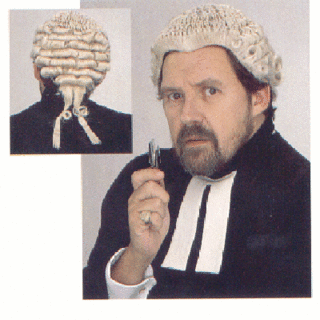Being a Barrister.

Disclaimer: (of course) This is not me. Sadly. I can only dream...
For all you American readers, a ‘barrister’ is a lawyer who operates at the sharp end - in court. I think perhaps you call it ‘litigator’.
I work half in crime and half in civil law.
Part of working in crime is that it raises so many fantastic real life stories and dilemmas, which may transfer onto this blog in due time, though don’t worry, that won’t be a main subject. For today I’ll just have a quick look at a question often posed to me and one relevant to A Neutral World:
“If you think someone is guilty of a crime how can you represent them?”
It’s one all us criminal lawyers hear constantly, especially at lame parties where everyone tries to raise intellectual conversation and can only come up with clichéd and obvious half critical attempts at gaining the moral higher ground.
Anyway, here are a couple of obvious answers:
1) You never can be sure that someone is guilty (unless they actually tell you, in which case you can only represent them on a guilty plea). There are countless historical examples of cases where all (including the defendant’s lawyers) have considered the person guilty. Only later has further evidence come to light to prove their innocence. The moral of the story is the second answer:
2) As a lawyer, you are not the judge and jury! It simply isn’t up to you to judge your client. If it’s so obvious that the guy is guilty then that will be clear to the jury. I hate to use the phrase, but: innocent til proven guilty.
As it happens, I think there is a truly wonderful neutrality in the job of being a barrister. To be good, you have to be completely emotionally detached. It is a pure art of intellectual persuasion.
Of course, some might consider persuasion to be a moderately evil practice… More of that another time perhaps.

0 Comments:
Post a Comment
<< Home